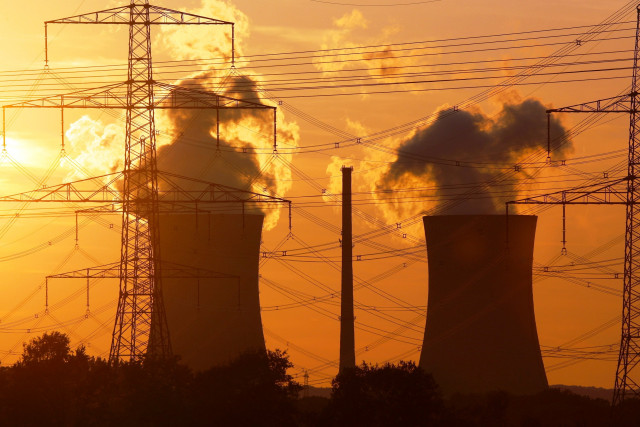Nuclear energy: China pushes ahead with Chashma expansion
China committed to controversial plans expand Chashma nuclear plant even after Japan's crisis triggered global alarm.

China is committed to controversial plans to expand the Chashma nuclear power plant using 1970s technology, experts say, even after Japan’s crisis triggered global alarm about atomic safety.
The nuclear power plant at Chashma drew international unease well before the March 11 earthquake and tsunami battered the 1970s vintage nuclear reactors in Japan, crippling cooling systems and causing radiation to leak into the surroundings.
Those worries could now multiply. But neither Beijing nor Islamabad is likely to back away from the project.
The reactors at Chashma, including the third and fourth units China has planned, are derived from designs dating back to the 1970s, said Mark Hibbs, an expert on atomic policy at the Carnegie Endowment for International Peace. This means they have fewer safety features than the newer models Beijing will increasingly use for domestic nuclear plants.
“If China wants to help Pakistan build a reactor right now, they’re locked into this design,” said Hibbs, citing patent restrictions and atomic export barriers that prevent China from selling more up-to-date designs abroad.
Beijing remained committed to Chashma, and would probably not seek a green light from a nuclear trade group, said Li Hong, a prominent Chinese nuclear expert.
“There’s no doubt that China will go ahead with Chashma, because this cooperation with Pakistan has such a long history,” said Li, Secretary General of the China Arms Control and Disarmament Association, a government-sponsored think tank in Beijing that focuses on nuclear proliferation issues. “China will absorb lessons about nuclear safety from Japan’s problems, including for Chashma.”
Some Pakistani nuclear experts, however, feel that the plant being installed in Pakistan is not worth the risks.
“The Chinese reactor is an adaptation of an old Westinghouse design that would not qualify for operation in much of the world,” said Pervez Hoodbhoy, physics professor at Quaid-e-Azam University in Islamabad.
A nuclear showcase
China supplied the first two reactors at Chashma and is now proposing to build reactors 3 and 4.
The plant is located on plains near the banks of the Indus River, hundreds of miles to the south of Kashmir, the site of a 7.6 magnitude earthquake in 2005 that officials say killed 75,000 people. It was also not damaged in last year’s devastating floods.
China suspended approvals last week for new domestic nuclear plants. But reports on Chinese nuclear websites show work on Chashma continued after the calamity hit Japan.
On March 14, Chinese engineers helped run the first successful test for linking the new Chashma reactor unit to a power grid, according to Shanghai Nuclear Engineering Research and Design, which is helping build it.
Last month, the China National Nuclear Corp, the nation’s dominant atomic company, held a two-day meeting to refine plans for work at Chashma in 2011, when the new, second reactor is due to go into service.
“In 2011, we will strive to bring the project into commercial operation two months ahead of schedule,” said the report from that meeting.
Downplaying concerns
The International Atomic Energy Agency, the United Nations’ nuclear watchdog agency, agreed in early March to Pakistan’s request to safeguard the two new reactors planned for Chashma, a step that would allow the agency to help ensure nuclear material from the reactors is secure and not diverted into weapons-related programmes.
Washington and other governments have said China should seek approval for the planned reactors from the Nuclear Suppliers Group (NSG), a cartel that seeks to ensure nuclear exports do not get used for non-peaceful purposes.
When the United States sealed its own controversial nuclear energy agreement with India in 2008, it won a waiver from that rule from the NSG after contentious negotiations in which China raised misgivings.
Beijing is likely to shun calls to seek special approval, arguing the two new units planned at Chashma come under a bilateral agreement sealed before it joined the NSG in 2004.
“I don’t think that China will seek approval from the NSG,” said Li, the arms control association official. “China considers that the new reactors were grandfathered under a previous agreement,” he said.
Other NSG members are likely to want assurance that the two reactors planned for Chashma will be the last that China claims need no approval, said Hibbs.
Last year, the China National Nuclear Corp said it was in talks to build a separate 1,000 megawatt atomic plant in Pakistan.
WITH ADDITIONAL REPORTING BY FAROOQ TIRMIZI
Published in The Express Tribune, March 25th, 2011.



















COMMENTS
Comments are moderated and generally will be posted if they are on-topic and not abusive.
For more information, please see our Comments FAQ